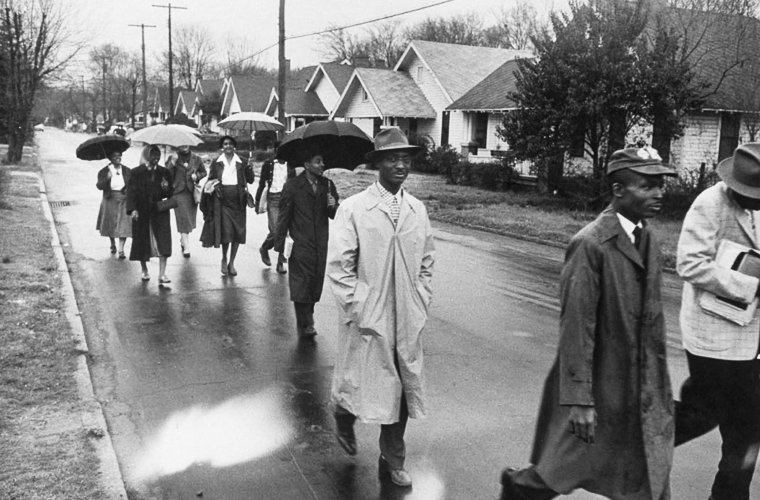The Montgomery Bus Boycott was a pivotal event in the civil rights movement that took place in Montgomery, Alabama, from December 5, 1955, to December 20, 1956. This historic protest was sparked by the arrest of Rosa Parks, a black woman who refused to give up her seat to a white passenger on a segregated city bus. The boycott marked a significant turning point in the fight against racial segregation and discrimination in the United States. The boycott was organized by the Montgomery Improvement Association (MIA), which was led by a young minister named Martin Luther King Jr. The MIA called for a citywide boycott of the bus system, urging African American residents to refuse to use the buses as a means of protesting the unfair treatment they experienced on public transportation.
The boycott garnered widespread support from the black community in Montgomery, as well as from sympathetic white allies. As a result, the bus system suffered a significant drop in ridership, leading to financial losses for the city’s transit company. The success of the boycott demonstrated the collective power of nonviolent resistance and civil disobedience as tools for social change. The legal battle over bus segregation culminated in a landmark Supreme Court decision in November 1956, which declared segregated seating on public buses unconstitutional. This ruling marked a major victory for the civil rights movement and set a precedent for challenging segregation laws across the country.
The Montgomery Bus Boycott not only achieved its immediate goal of desegregating the city’s buses but also inspired and energized the broader struggle for civil rights. It catalyzed subsequent nonviolent protests and demonstrations, including the sit-ins, freedom rides, and marches that characterized the civil rights movement in the 1960s. The courageous actions of the individuals involved in the Montgomery Bus Boycott, including Rosa Parks, Martin Luther King Jr., and countless others, laid the foundation for future activism and paved the way for legislative victories such as the Civil Rights Act of 1964 and the Voting Rights Act of 1965.
The legacy of the Montgomery Bus Boycott continues to resonate today as a symbol of resilience, determination, and the power of grassroots organizing in the pursuit of justice and equality. It stands as a reminder of the ongoing struggle for civil rights and serves as an enduring example of the impact that ordinary people can have when they come together to challenge injustice.

